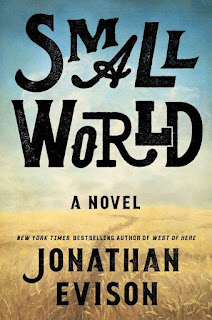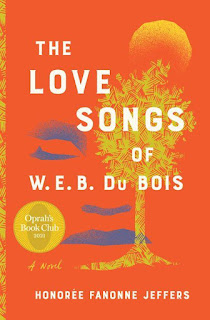It's a novel that starts out like a frothy story about trying to fit in with NYC's upper crust. But as we learn more about Olga, her Congressman older brother Prieto, and their mother, the novels shifts in tone and takes on a much more political, and frankly, flat-out furious, tone. It becomes a novel about gentrification, class and race, the injustices wrought upon Puerto Rico (Olga and her brother are second-generation Puerto Ricans), neo-colonialism, corruption, and the failures of leadership. That's a pretty heavy shift from a light-hearted rom-com. But it truly works. And it's amazingly well done.
Think about it in terms of napkins. The novel begins with Olga planning a wedding and explaining how every mother-of-the-bride has one detail Olga knows will be the bane of her existence during the wedding planning process. For this particular wedding, it's the napkins. But as you continue to progress through the book (and progress quickly, you will!), when you think about the napkins anecdote, it's a perfect symbol of the absurdity of what matters to the wealthy that doesn't really matter and at all, and it's a perfect juxtaposition to everything else in the novel that's so much more important.
Here's a little on the plot: It's the summer of 2017, and we're all starting to figure out that the new "president" is going to be even worse than we could've possible imagined. But this is all in the background for the time being as Olga, born and raised in the Latinx-majority Sunset Park neighborhood of Brooklyn, hob-nobs with the rich and famous, sleeps with rich married men, appears on television shows to talk about weddings, and builds her wedding-planning brand. Her older brother Prieto is the Congressman for their district, and though the two siblings are close, we soon learn Prieto harbors some serious secrets.
And there's one more twist before things really start to heat up: Their mother, a political radical and advocate for Puerto Rican independence, had left the family when they were kids. Not long after, their father falls apart, becomes addicted to drugs, and dies of AIDS. Their mother has been in contact with them throughout their lives through a series of letters. Somehow, she always knows what's going on in their lives: And she's very disappointed in Olga's career choice.
So late in that summer of 2017, Hurricane Irma hits in the Caribbean, knocking out power to most of Puerto Rico. But if you remember, this was just the dress rehearsal for Hurricane Maria, which hit two weeks later, and absolutely devastated the island. The island got almost no help from the federal government to prepare or in the immediate aftermath. It was in many ways worse than Hurricane Katrina. (You may remember that video of the "president" chucking rolls of paper tolls into a crowd of people, people who had no food or clean water.)
Hurricane Maria becomes the fulcrum point for the novel. It's also a major turning point for both Prieto and Olga. Everything changes for them. For the better? Worse? What lessons do these characters learn? What happens with their mother?
I read this novel — it's just shy of 400 pages — in three days. I could not put it down. It's absolutely riveting, incredibly well-written, smart, and at times really funny. It's one of those novels that comes along only a couple times a year that really reminds me how much I love reading. I can't recommend it more highly.




